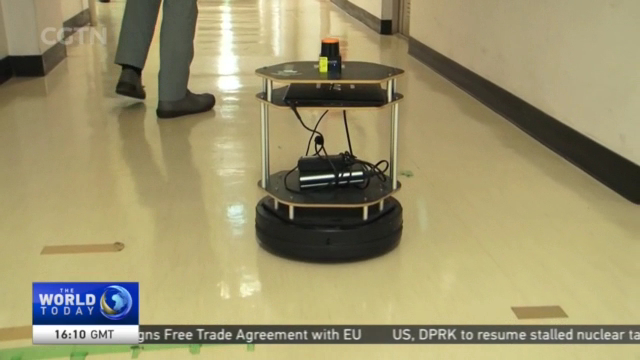
10:17, 01-Jul-2019
Japan Society 5.0 Plan: Reviving an aging and shrinking population
Updated
17:00, 09-Jul-2019

Japan intends to lead initiatives to overcome challenges in a new era. Prime Minister Shinzo Abe has expressed support for emerging technologies - such as artificial intelligence and robots to realize economic growth and solve social issues for a human-centered future. CGTN's Terrence Terashima has more.
Earlier this year, Japanese Prime Minister Shinzo Abe emphasized the increasing importance of data for the global economy.
Abe added a new initiative - the "Society 5.0" as part of his growth strategy. It's meant to help overcome problems arising from the country's shrinking population and a stagnant economy, with hopes to become a global leader in new technologies.
Although useful technologies are available in the country, one of the hurdles Japan has faced is how to consolidate them and revise legislation to create a so-called smart society.
Tokyo Institute of Technology took the initiative to form what it calls a "Super Smart Society Promotion Consortium" to do just that.
KEI SAKAGUCHI PROFESSOR, TOKYO INSTITUTE OF TECHNOLOGY "Japanese companies always had a strong tendency to be closed and undertake research and development independently. I am not trying to deny it, but we want to look at it from a broader point of view. We hope to raise the level of education for students from elementary to university. We have received support from over 30 institutions, and continue to expand our projects."
Incorporating cyber and artificial intelligence into businesses and society holds promise for Japan. Becoming a "smart society" will address Japan's long-standing problems of an aging and shrinking population, and limiting economic growth.
KEI SAKAGUCHI PROFESSOR, TOKYO INSTITUTE OF TECHNOLOGY "When you look at it from the perspective of building a smart society, you can say Japan is a super advanced country in having to deal with these problems and being a testing ground for it. We have many offers for overseas companies to work with Japanese companies and local governments to solve Japan's social challenges."
Advanced communication networks and data management could open up new possibilities for the country as well.
TERRENCE TERASHIMA TOKYO "Another important field is disaster prevention. Japan has faced several natural disasters in the recent decade. Improved communications and early warning systems could reduce fatalities considerably. Terrence Terashima, CGTN, Tokyo."
SITEMAP
Copyright © 2018 CGTN. Beijing ICP prepared NO.16065310-3
Copyright © 2018 CGTN. Beijing ICP prepared NO.16065310-3